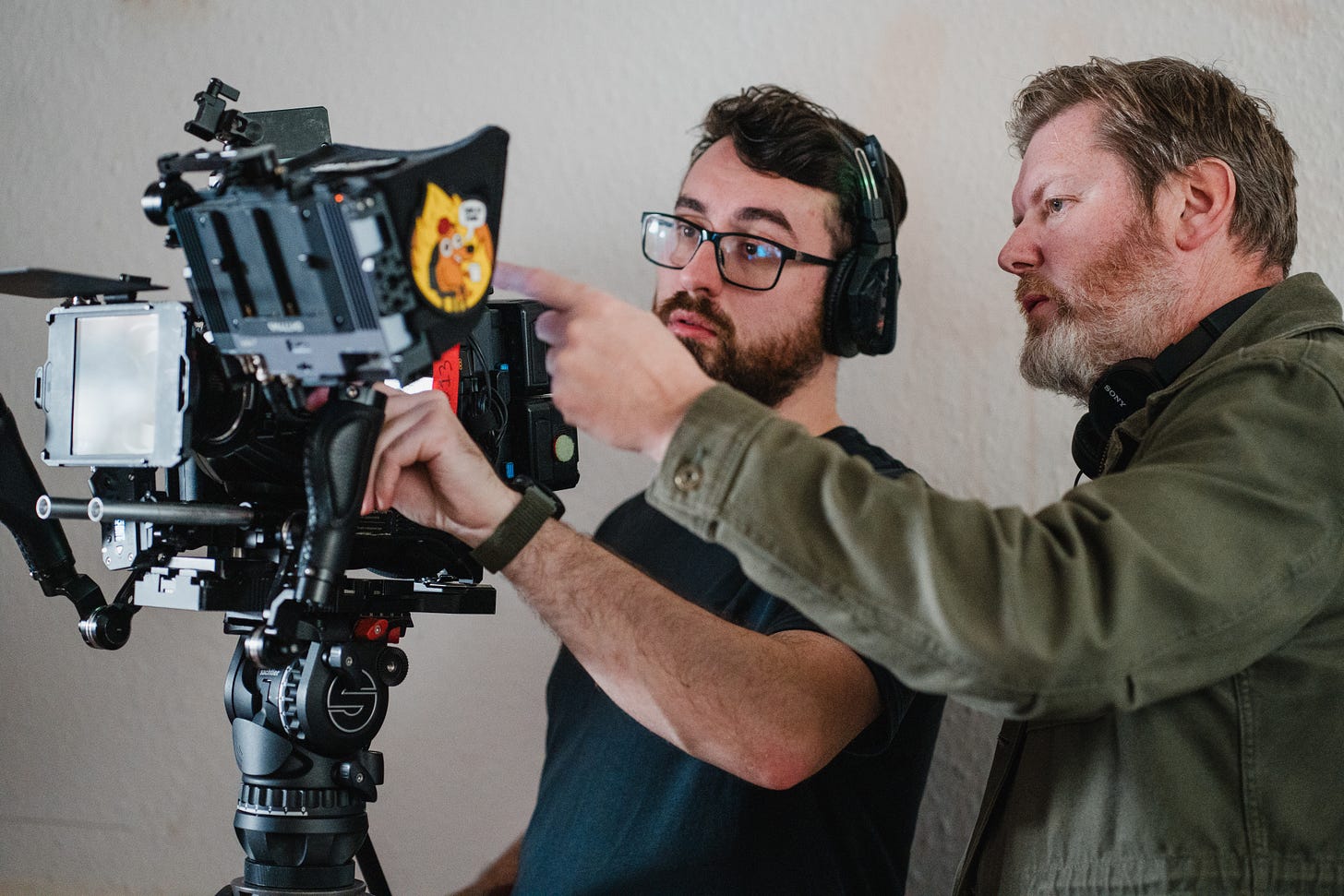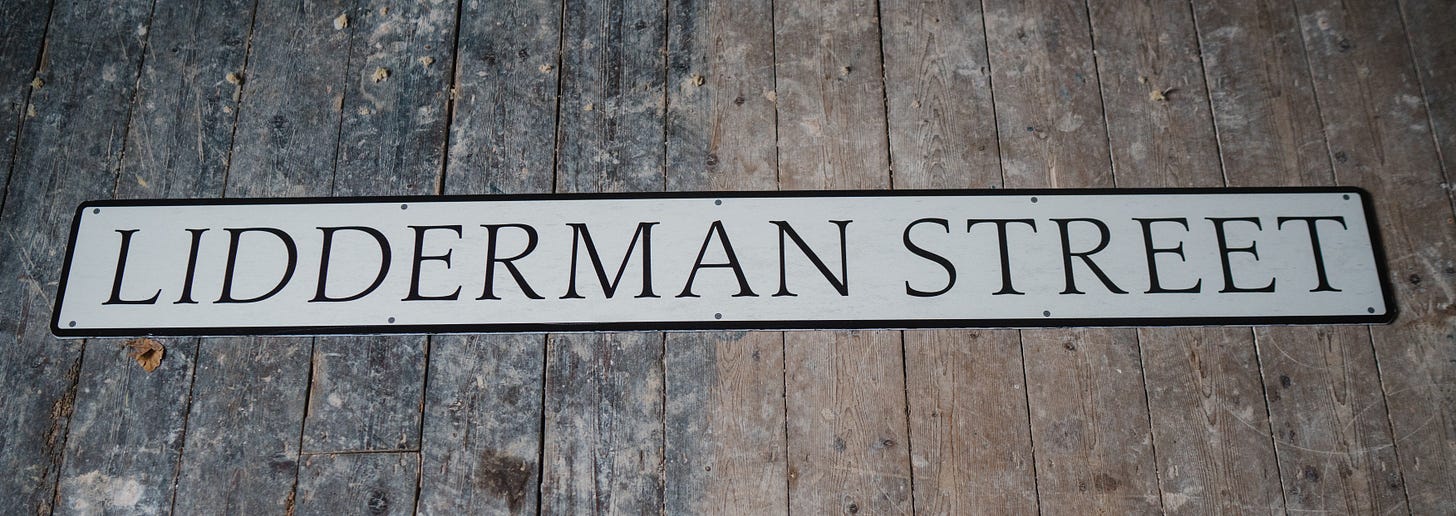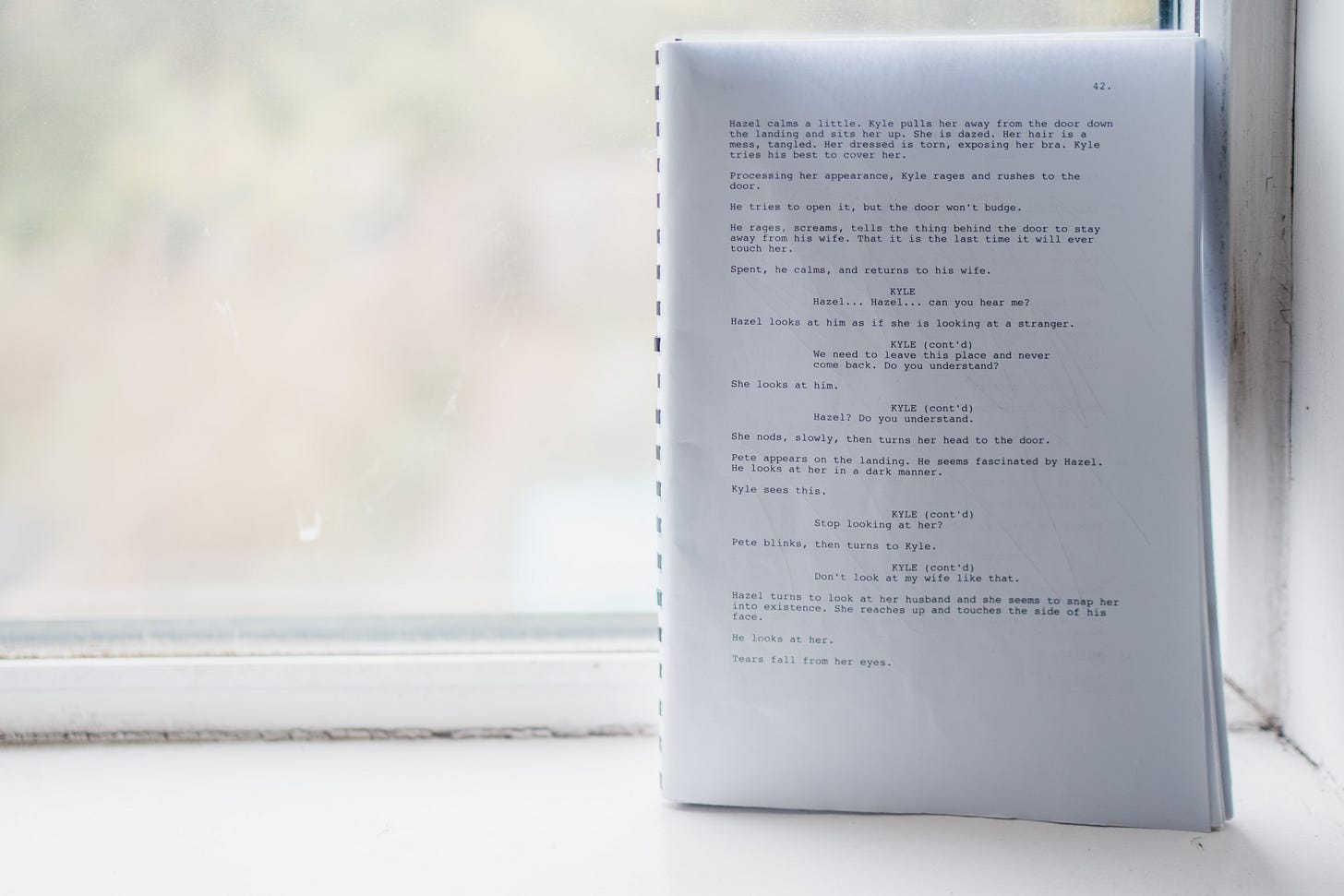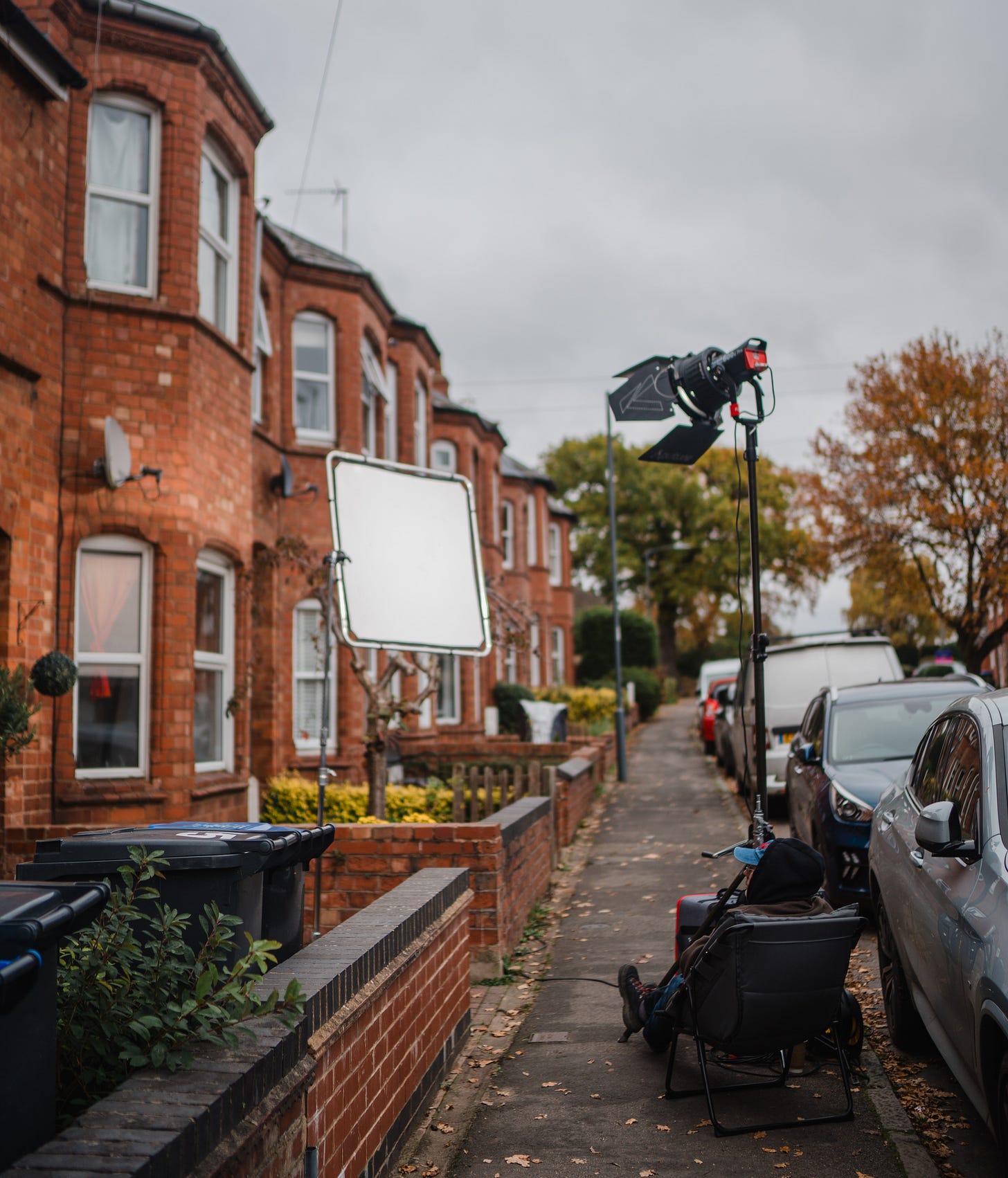Been thinking a lot recently about the differences between writing and directing. Both are, without a doubt, modes of storytelling, but for me, they couldn’t be more different. I’ve done both - far more writing than actual directing, but enough to get a good overview - and the conclusion I’ve come to is they use different parts of my brain and personality. Let me explain.
For one, being a writer is to be an introvert, whereas being a director is to be an extrovert. No great revelation there, I’m sure, but there is something in that. In writing I can be myself. I can be quiet, I can take my time. I can tinker and tweak and get it right; make it how I want it (there is very little time for any of that in directing). There is solitude, time to think, time to be me. I love it. Creating in my own space, working at a steady pace, either listening to film scores or simply writing in complete silence, probably with some nibbles and a beer. That sounds like bliss to me.
Also, in writing, my imagination is limitless. To a degree, anyway. I often write screenplays to be made on extremely low budgets, so I do write with an eye on the money and logistical factors, but still - in those 1st drafts at least, I can fly. Novels are different. Novels truly are limitless. There are no budgetary constraints, no eye on the amount of cast and locations I can have, no concern with stunts and effects. I can do anything I want. I could set a story in space, have an epic journey across deserts and wild jungles, or even write something that spans decades, centuries.
And do I do any of that with such freedom of limitless imagination?
No. My novels seem to be small, personal stories about working class lives set in my hometown of Derby. Often about ordinary lives in extraordinary situations. So far, anyway. But I could set something in space if I wanted to and not have to worry about the budget. I guess that’s the point I’m trying to make.
(I suppose, all three of my novels so far - The Electric, Dead Leaves, and Society Place - are all period pieces. Something I couldn’t write on the types of budgets I’m used to writing for. The Electric being the most imaginative and expensive to film of the three books, without a doubt. Although it would be a filmmaker’s playground, that one.)
Directing, on the other hand, is an entirely different shiver of sharks. When I’m directing, I feel I’m almost having to put on a performance. It takes a different part of my brain to enable me to do it. You have to be ON, all the time. You have to call people, ask for things, make plans, be decisive, think quickly, manage people, have confrontations, and answer endless questions. Some people naturally thrive on that. I, however, have to act in the part. It takes a lot for me to get in that zone, and even more to maintain staying in that zone.
(The main job of a director is to point a lot.)
There is, however, an adrenaline rush to directing. That much is undeniable. All of the things I listed above soon become like a drug and whether I’m playing the part or not, I can get swept away by it. And there’s nothing quite like watching the actors in the monitor bring your story to life.
I’ve had a lot of tough manual jobs in my lifetime. From working as a bricklayers’ labourer to carpet fitting to digging out railway sleepers from frozen ballast in the dead of night, but directing is one of the hardest jobs I’ve ever done. It’s mentally and physically draining, which is why the adrenaline it takes to do the job kinda sees you through. It has to.
I shot for eight days on The House on Lidderman Street and that film was designed to be as simple as possible, but even that did me in. How directors can shoot for months and months on a movie, I don’t know. But then again, at that stage, you have a massive crew and producers and a 1st and PAs and runners and all the things I’ve never fully had. They’re not having to sort out people’s lunch orders while also trying to direct. Still, it must be an absolute endurance test.
And it doesn’t stop once filming ends either. Post-production is another stretch of mental fortitude. Post on The House on Lidderman Street has not been going very smoothly, I have to say, and I guess it’s because of this that these thoughts have been rattling around my old noggin. How much creative satisfaction do I get from filmmaking? (By filmmaking, I mean working as a director and seeing a project from script through to completion.) How much more satisfaction do I get from writing, in contrast?
The answer is, I’m not sure. I feel that I’m certainly more of a writer than a director. It fits my personality more, but then, having made a film by my own hands… seeing it through to completion, watching it go out into the world… there’s nothing quite like that.
I guess in the end, I’m looking for creative fulfillment. I’ve long since given up on the notion of making any proper money out of this stuff, so it’s the work itself that has to give you the meaning. Or the feeling of meaning.
I’m currently co-writing a screenplay that has real potential to push things over, to make some real noise, but it’s the act of actually doing the work that I’m finding fulfilling. All the other stuff is just the icing, if it happens. That’s where you need to be as an artist (dare I use that word?). You have to find fulfillment in the work itself.
That’s where I have to be, anyway.
When The House on Lidderman Street is complete, I might have different feelings about all this. When it’s finished, I might suddenly want to go and direct another film, but at the moment, I can’t see it. At the moment, I love being a screenwriter and short story writer (which I’ve also been doing a lot of). Maybe that’s just my path for this year, and once Lidderman and The Wilding go out into the world, things may change.
The bio on my Socials reads: Screenwriter & Novelist. Occasional Film Director.
I guess that fits me very well.
(All Stills by Lee Allen)






